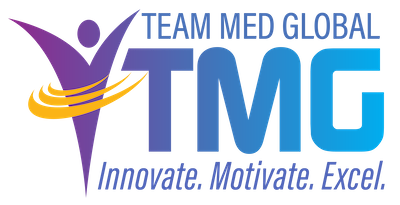 In the high-stakes arena of healthcare administration, Medical Services Professionals (MSPs) are the unsung heroes behind the scenes, ensuring that the gears of healthcare operations run smoothly. Yet, the path to excellence in this critical role is fraught with unique challenges that require more than just routine solutions. How do you foster an environment that not only survives these pressures but thrives under them? The answer lies in adopting innovative and tailored strategies that resonate deeply with the needs of MSPs, transforming everyday challenges into opportunities for growth and innovation.
In the high-stakes arena of healthcare administration, Medical Services Professionals (MSPs) are the unsung heroes behind the scenes, ensuring that the gears of healthcare operations run smoothly. Yet, the path to excellence in this critical role is fraught with unique challenges that require more than just routine solutions. How do you foster an environment that not only survives these pressures but thrives under them? The answer lies in adopting innovative and tailored strategies that resonate deeply with the needs of MSPs, transforming everyday challenges into opportunities for growth and innovation.
Advanced Data Analytics for Proactive Problem-Solving
In the data-heavy realm of MSP work, utilizing advanced analytics can transform your workplace. Implementing predictive analytics tools can help foresee potential bottlenecks in credentialing processes or identify patterns that may lead to compliance issues before they arise. This forward-thinking approach allows MSPs to address challenges proactively rather than reactively, reducing stress and enhancing workplace satisfaction.
Integrating Emotional Intelligence into Leadership
Leadership within MSP roles should extend beyond administrative oversight. Emotional intelligence (EI) is critical in managing teams that often handle high-stress, high-stakes tasks. Leaders equipped with EI are better at recognizing the emotional and professional needs of their team, can navigate conflicts more effectively, and provide support that aligns with individual team members’ motivations and stressors. Training for managers in emotional intelligence can lead to a more harmonious and responsive work environment.
Creating a Culture of Intellectual Curiosity
MSP work can sometimes be tedious, which may stifle innovation and engagement. Cultivate a culture where intellectual curiosity is rewarded. Encourage your team to question existing processes and explore new ideas without fear of failure. This could involve regular “innovation meetings” where staff can present ideas for improving efficiency or effectiveness, with successful initiatives being recognized and implemented. Such a culture not only innovates but also significantly boosts job satisfaction and personal investment in the work.
Specialized Resilience Training
Given the complex and often pressure-filled nature of MSP tasks, resilience is a key trait for success. Offer specialized training programs focused on building resilience, managing stress, and fostering a growth mindset. These programs can provide MSPs with tools to cope with the high demands of their roles, leading to improved mental health and productivity.
Leveraging Cross-Departmental Synergies
MSPs frequently interact with various departments, from human resources to compliance and IT to provider enrollment. Developing cross-departmental teams for projects related to credentialing processes, compliance audits, or IT implementations can lead to innovative solutions and greater cohesion. These teams can share unique insights and create synergies that enhance the overall effectiveness of the healthcare administration.
Tailored Career Pathways
Create clear, tailored career pathways for MSPs in your organization. This goes beyond standard professional development; it involves understanding the specific aspirations of each MSP and crafting pathways that align with their skills and career goals. Whether it’s a path toward senior administrative roles, specialization, or leadership positions, personalized growth plans can greatly enhance engagement and retention.
Enhancing the work environment for MSPs requires more than surface-level changes; it necessitates a deep understanding of their unique role within healthcare and tailored strategies that address these specificities. By adopting these approaches, you not only improve the immediate work environment but also contribute to a more effective, engaged, and resilient MSP workforce, prepared to meet the evolving challenges of healthcare administration.
